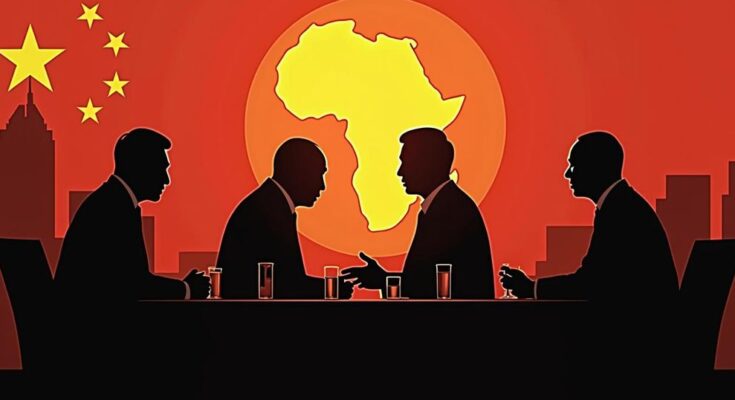The 2024 China-Africa Summit, taking place from September 4 to 6, gathers leaders from 53 African nations to discuss cooperation and investment opportunities with China, particularly focusing on raw materials and infrastructure projects. This high-level meeting reflects China’s intent to strengthen its influence in Africa amidst competition from Western nations, amidst ongoing criticism regarding sustainability and debt practices.
The upcoming China-Africa Summit, officially referred to as the Forum on China-Africa Cooperation (FOCAC), will take place from September 4 to 6, 2024, in Beijing, marking the ninth assembly since its inception in 2000. During this event, leaders from approximately 53 African nations, along with various ministerial delegates, shall convene to strengthen their diplomatic ties with President Xi Jinping and to discuss pivotal topics such as industrialization, agricultural advancement, security, and the greatly ambitious Belt and Road Initiative. This summit arrives amidst China’s strategic effort to enhance its influence in Africa, especially in light of the growing competition with Western nations for economic partnerships. Historically, previous summits have resulted in mutually beneficial agreements; China has gained access to vital raw materials while providing substantial investment opportunities to African nations. The Ministry of Foreign Affairs of China has highlighted this summit as “the largest diplomatic event” hosting numerous foreign leaders in recent years, embodying a pivotal gathering for fostering China-Africa unity. Key discussions are expected to unfold on improving investment, particularly in exchange for important minerals such as lithium, copper, and cobalt. The summit will not only showcase China’s diplomatic leverage but is also anticipated to draw attention to the necessity of making past promises from previous summits a reality, particularly regarding infrastructural development. In light of the presence of high-profile attendees, including UN Secretary-General Antonio Guterres, the significance of this event is elevated further. Despite the opportunities presented by Chinese investments, challenges remain, particularly with growing local resistance due to environmental concerns and the potential for unsustainable practices. Criticism surrounding China’s investment strategies, termed “debt diplomacy,” has raised concerns among African nations, particularly after countries like Zambia have struggled to repay substantial loan amounts received from Chinese sources. Nonetheless, China has continuously refuted claims of an intentional debt trap strategy. In conclusion, the forthcoming summit is poised to be a crucial event for both China and African nations, as it promises to enhance cooperative engagements, bolster economic partnerships, and address prior commitments, all under the larger narrative of China’s quest for global influence.
The China-Africa Summit is an essential gathering that showcases the ongoing efforts of Beijing to strengthen its diplomatic and economic ties with the African continent. Given Africa’s richness in natural resources and its growing market potential, major Chinese investments focus on infrastructure and raw materials, benefitting both parties in the long term. However, these investments also attract criticism and skepticism regarding environmental consequences and the sustainability of economic agreements. As global powers vie for influence in Africa, China aims to assert its position through high-level meetings and significant financial commitments, emphasizing both cooperation and developmental progress.
In summary, the 2024 China-Africa Summit represents a pivotal opportunity for deepening the economic and diplomatic relationship between China and African nations. The discussions surrounding investment and resource access reflect a bilateral approach that benefits both sides, although local concerns regarding environmental issues and debt sustainability must be addressed. As the summit unfolds, it will be crucial to monitor how agreements translate into tangible benefits for African countries while simultaneously enhancing China’s strategic interests in the region.
Original Source: www.aljazeera.com




